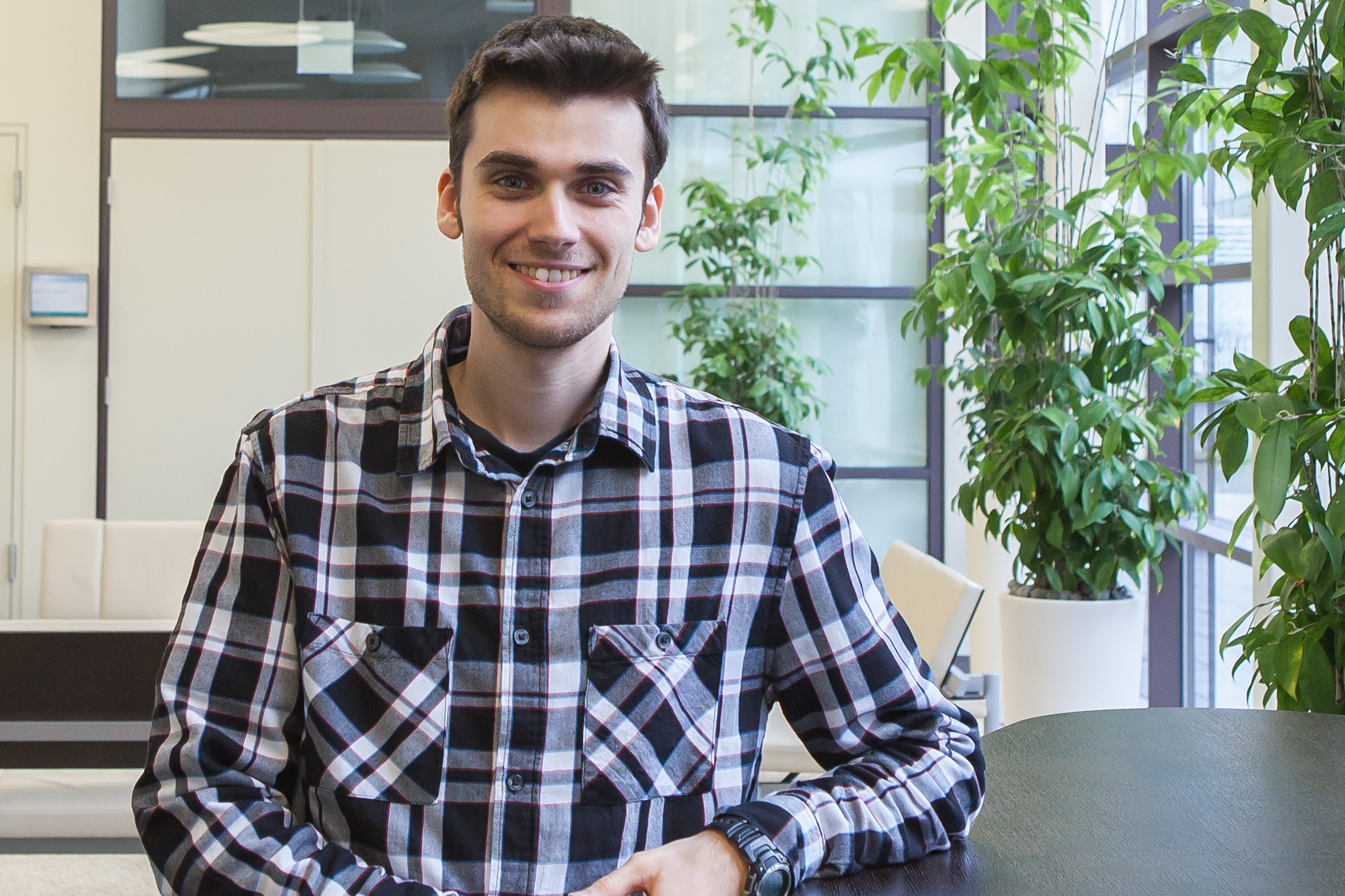Erdin Ture was born in Manchester, grew up in Istanbul and studied in Freiburg. After joining Fraunhofer IAF as a research assistant four years ago, he is now nearly finished with his PhD in power electronics. In an interview, he explains what excites him about his research topic and why he wants to stay at Fraunhofer IAF even after completing his degree.
In your dissertation, you deal with three-dimensional transistors based on gallium nitride. What exactly are you investigating?
I use the three-dimensional transistor approach to build power amplifiers at very high frequencies. Thus far conventional approaches have shown that performance suffers if high output power levels are to be delivered at high frequencies. In other words, there is still a gap between the technology and the material properties. The tri-gate approach that I am applying makes it possible to bridge this gap. Tri-gate facilitates the integration of analog and digital circuits on the basis of GaN. In mobile or satellite communications, for example, data rates climb sharply, which means that higher and higher transmission speeds are needed. At the same time, we also have to supply high output power. The use of tri-gate transistors here makes it possible to harness the performance advantages of gallium nitride, even at such high frequencies.
How did you arrive at this dissertation topic and what excited you about it?
The opportunity to develop a completely new concept that had never been investigated before in GaN technology was appealing to me. Intel has been using the tri-gate approach for its silicon technologies for years. It has been so successful that now every new computer processor uses tri-gate transistors. Thus far, there have been few attempts to apply this concept to GaN or any compound semiconductors. I was excited about the opportunity to develop the first complete GaN-based tri-gate technology.
Why did you choose Fraunhofer?
In my opinion, Fraunhofer combines several of the advantages of industrial and academic research. Our research here focuses on end products that are ready for application, which is less often the case at universities. And although we also work closely with customers, we have more freedom than exists in industry, where research is often more strongly tied to the requirements of production technology.
Do you already know what you will do next after you finish your PhD?
I would like to stay at Fraunhofer IAF to gain experience in project work. Precisely because of the research freedom here, I think that Fraunhofer IAF offers the perfect opportunity to work on exciting scientific projects. I have the freedom to explore all aspects of a topic, and I appreciate that.
Where do you see yourself in 10 years?
At some point I would also like to gain experience in industry, ideally at a company in the USA or in England. I think industrial experience is also important because working in direct contact with the customer allows one to learn about critical problems in this area and carry out more targeted research.
What has been the highlight of your work at Fraunhofer IAF so far?
The highlight for me was when I measured my circuit for the first time last year – the first GaN-based circuit using three-dimensional transistors in the world! I was very pleased by the good results!
Which three concepts do you associate with Fraunhofer IAF?
Multi-tasking – team work – research freedom
What do you particularly like about Freiburg?
I particularly like the fact that the city is so quiet. I grew up in Istanbul, where everything is far more chaotic! Not only that, but Freiburg has many places where you can meet up with friends and relax, including in nature. Everything fits together here – it’s a complete package!
 Fraunhofer Institute for Applied Solid State Physics IAF
Fraunhofer Institute for Applied Solid State Physics IAF